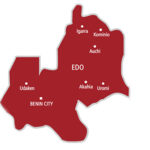
The Nigerian Army is setting the pace for other agencies of government on how to key into the nation’s drive to achieve a sustainable agro-economy and self-sufficiency in food production through the Barracks Investment Initiative Programme (BIIP).
A few days ago, the Nigerian Army Cattle Ranch, located in the New Giri Barracks after the Nnamdi Azikiwe International Airport in Abuja, received a boost with the donation of farm equipment and ranch facilities from the Federal Ministry of Agriculture and Rural Development.
The event was symbolic in view of incessant conflicts between herders and farmers in rural communities in some states. It was to demonstrate the importance of ranching.
Sitting on a vast land which could accommodate several thousands of cows, the ranch has two breeds of about 300 cows – the local Fulani white cows and the hybrid resulting from crosses with the Sokoto Gudali specie.
The ranch, which is part of the Barracks Investment Initiative Programme of the Army, is stocked with over 30 tonnes of feed concentrates, machines for making feeds and grass seeds for producing pasture.
The Chief of Army Staff, Lt. General Tukur Buratai, while receiving the farm equipment donated to the ranch, said: “The Barracks Investment Initiative Programme (BIIP) is my brainchild. This is a programme that was initiated about one and half years ago and today, we have over 1,000 herds of cattle within Nigerian Army barracks and formations across the country.”
Buratai, explaining how the idea came, added: “I want to tell you one very important secret why on my appointment as the Chief of Army Staff, I decided to get this project started. I was in the National Defence College in Bangladesh, I went there with my daughter, she was just about seven or eight years old and while in the accommodation, every week Bangladeshi army ranch officials come to knock at our doors to deliver two to three litres of milk to my daughter, and it was from the army ranch, and I was thinking that if the Bangladeshi army could do this, why can’t we do? So I was motivated, not knowing that I would one day be appointed as the Chief of Army Staff, and behold, it’s one of my first projects that I directed for implementation. Actually, it started with the ranches and then we went into other areas like poultry, fisheries and even vegetable growing. I am happy that one of the Major Generals here has driven that project well in Makurdi.”
He stressed that the Giri Army Cattle Ranch is just one of the several ranches scattered all over Nigerian Army formations across the country. He reiterated that the initiative was introduced to cultivate the culture of investment in the agricultural value chain by officers and soldiers and their families.
The program has produced positive results among barracks communities and provided jobs for the youth in the barracks, wives of personnel as well as those serving and retired.
“Every barracks of the Nigerian Army specializes in one or more types of livestock breeding and farming such as ranching, farming, poultry production for eggs and meat, green houses and plantations are being successfully practiced,” he noted.
The ranch is now called the ‘Nigerian Army Farms and Ranches’, and will harness all the potentials of the Nigerian Army’s drive towards successful agricultural ventures.
The Army also recently acquired 436 hectares of land in Nasarawa State to expand its agricultural ventures. It is a desire to extend the frontiers of the Nigerian Army to addressing food security of the nation in line with the present administration’s policy on agriculture.
The Minister of Agriculture and Rural Development, Chief Audu Ogbeh, who was at the ranch, could not hide his feelings when he said: “A few days ago, I told the press that there was only one way out of the clashes between herdsmen and farmers and it is amazing that I am here now that the media will show to the world that this is how it is meant to be.”
“Isn’t it surprising that the Nigerian Army is showing us this? How many people out there will believe that I said this is the way forward and here we are hearing that apart from this place the army has 1,000 cattle here and there.”
The minister, while addressing officers and men of the Nigerian Army said he was proud of what they are doing, adding, “A revolution is going on and it is in the sector of agriculture.”
“For nearly 40 years, we forgot the farms, we spent $5 million a day importing rice, $18 million a year importing toothpicks, $100 million a year importing honey, $400 million a year importing tomato paste and so on. And we kept asking what was wrong with us, what would we do when we wake up from sleep, why is there no production of anything in our country, and we thank God we got broke in 2015, and it dawned on us that we can’t keep waiting for ship loads to deliver sugar, cookies and biscuits, ice cream, powder milk, etc. Here we are looking at a cattle ranch and let the message go from here. When we say we want to do the same with the rest of the country, we can do it, at least the Army has proved it.” He added.
The Director, Army Ranching, Brigadier General CG Musa, who conducted the minister and other top generals round the ranch, said the ranching programme will be extended to many barracks and army formations across the country.
The Permanent Secretary in the ministry, Dr Bukar Hassan who represented the Minister for State for Agriculture and Rural Development, Senator Heineken Lokpobiri, stated that the initiative of the Nigerian Army to invest in the livestock sector would put more money into the pockets of soldiers, their children and relations in the barracks.
He called on all agencies and parastatals that have something to do with ranching to come on board to support the Nigerian Army.
The Director, Federal Department of Animal Husbandry, Mr John Toyin Taiwo, said they delivered 25 tonnes of ruminant compounded feeds, which is a supplement to the grass the animals would be consuming to help them maintain their physique and productivity.
The ministry also presented to the ranch two varieties of pasture seeds, Andropogon and Stylosanthes. The minister also promised to help the Army establish milk and beef processing plants in due course.
The Chief of Army Staff, Lt. Gen. Buratai said: “Once we have food security, all other forms of insecurity including the insurgency in the North-East, militancy, kidnapping and a host of other criminal activities would be drastically reduced. I believe agriculture will greatly reduce the high rate of unemployment among our teeming youth.”
 Join Daily Trust WhatsApp Community For Quick Access To News and Happenings Around You.
Join Daily Trust WhatsApp Community For Quick Access To News and Happenings Around You.

